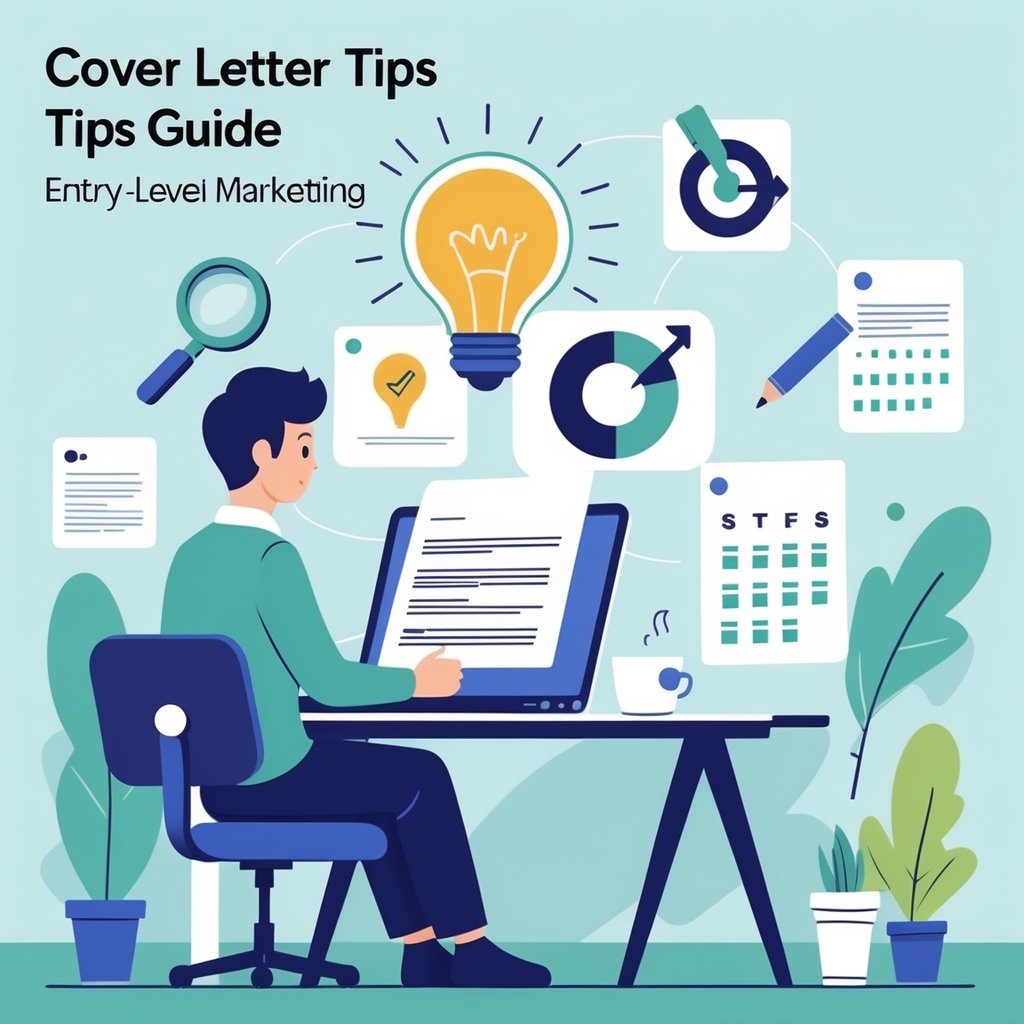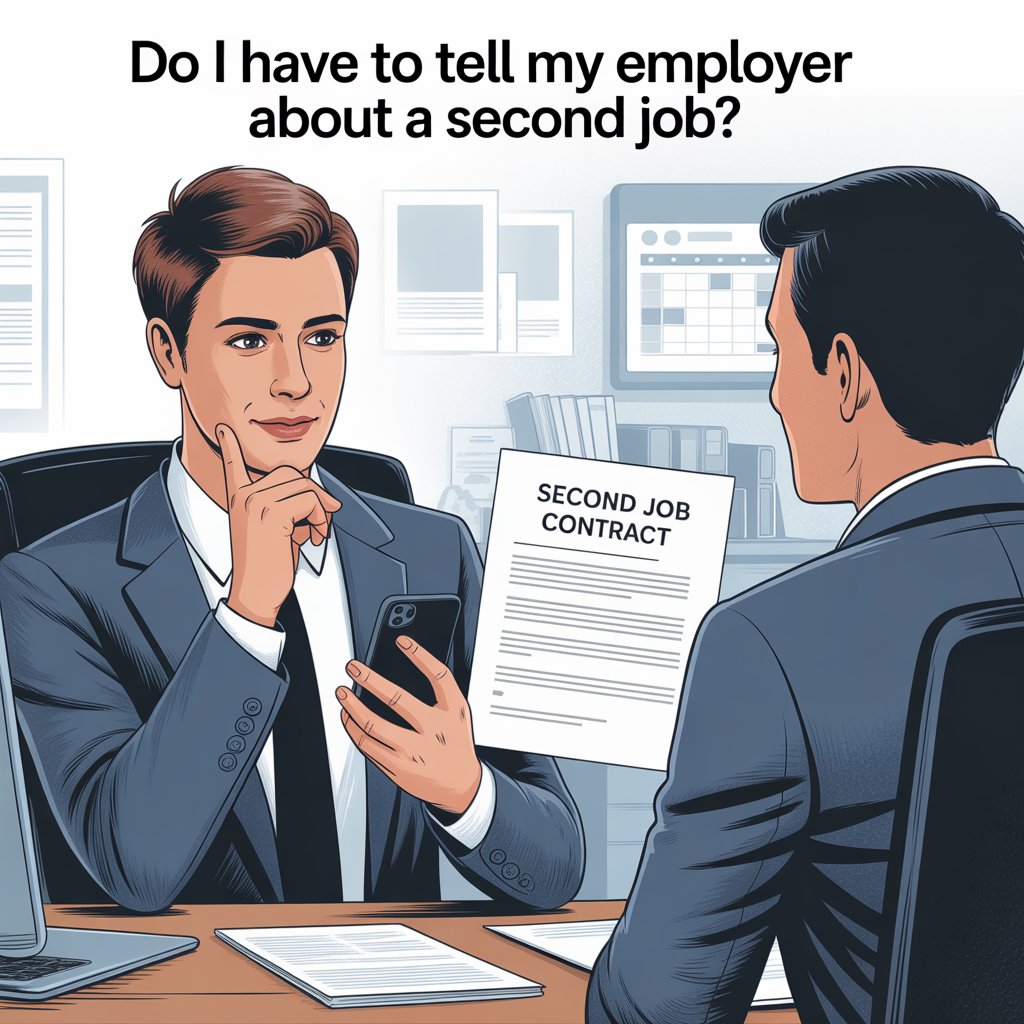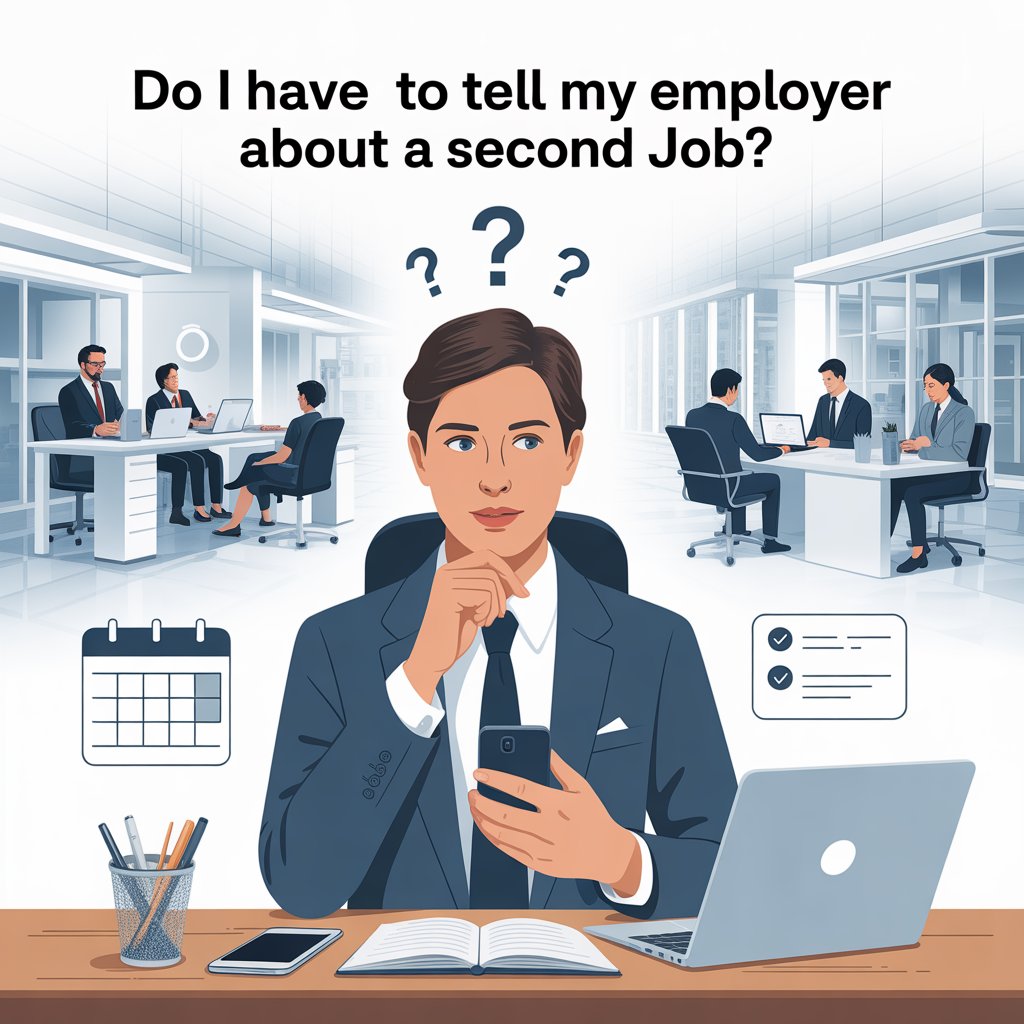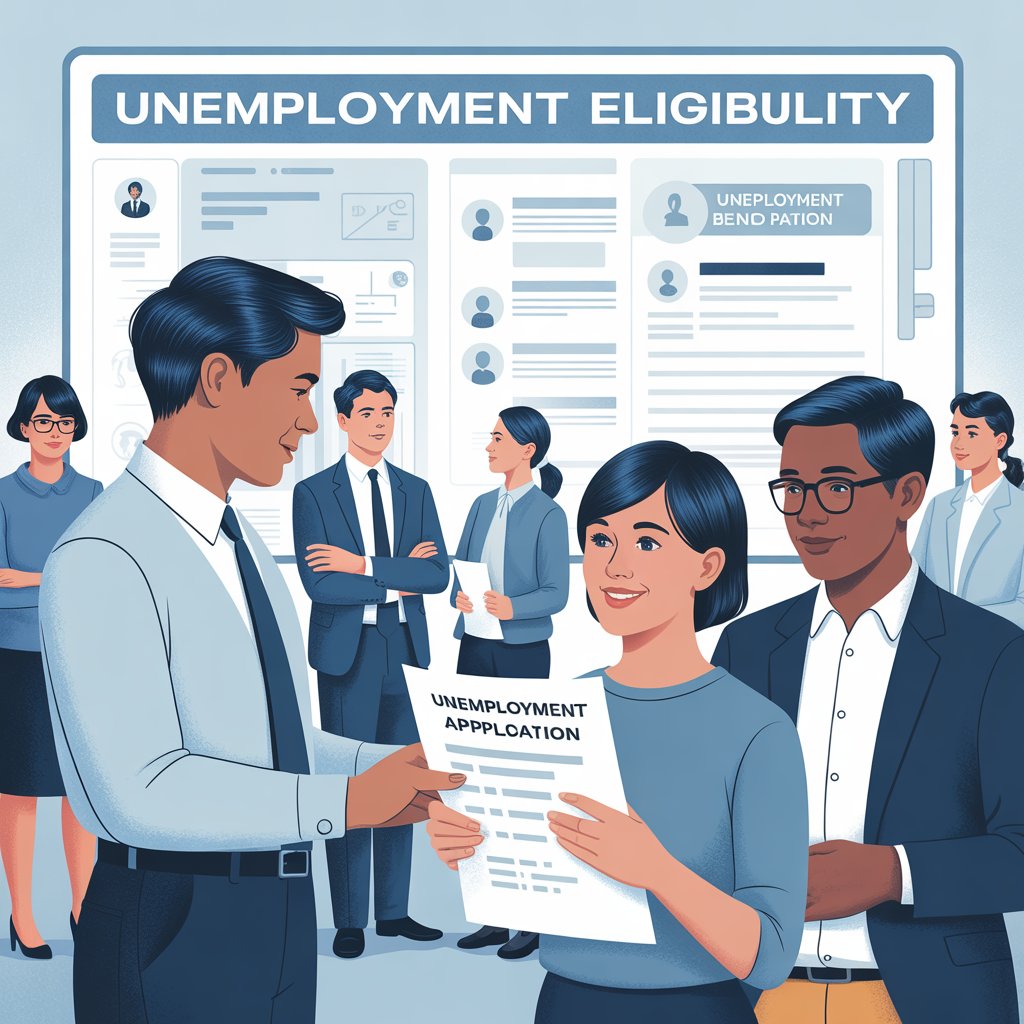The job market for entry-level marketing positions is crowded, so standing out is key. A well-written cover letter can help a candidate get noticed, even if they do not have direct experience. Many employers want to see that applicants are motivated, can communicate well, and have some understanding of marketing—even if they are just starting out.

Writing a great cover letter does not have to be overwhelming. Simple tips, such as personalizing your letter for each job and showing what unique value you can bring, will make you stand out from other applicants. There are free tools available today, such as platforms that help people create a professional cover letter or optimize their resume for marketing roles, making the whole process easier.
Candidates who want to maximize their chances can use resources like RoboApply to build their resume, create tailored cover letters, or even auto-apply to jobs across platforms. Taking these extra steps is a smart way to increase your chances of landing your first marketing job and starting your career strong.
Understanding the Role of a Cover Letter in Entry-Level Marketing Jobs

A cover letter acts as a bridge between a resume and the specific requirements of a job. It allows candidates to highlight their motivation for the role and showcase skills that align with entry-level marketing positions.
Distinguishing a Cover Letter from a Resume
A resume is a document that lists education, experience, and skills using a clear and organized format. In contrast, a cover letter gives more context to these details. While a resume shows what someone has done, a cover letter explains why those experiences matter for the job.
The cover letter also lets the applicant speak directly to the hiring manager. This document is where someone can point out why they are interested in marketing and how their personal drive fits the company’s goals.
Below is a simple comparison table:
| Resume | Cover Letter |
|---|---|
| Lists work history and skills | Connects experience to the job |
| Follows a set structure | Allows for a more personal approach |
| Used for all applications | Should be tailored for each job |
With tools like RoboApply, candidates can build their resume with RoboApply and easily create a professional cover letter that fits each job description. This approach helps both documents work together without repeating information, making the whole job application stronger.
Why Hiring Managers Value Cover Letters
Hiring managers see many applications for entry-level marketing jobs. A strong cover letter helps someone stand out by sharing qualities or motivations that are not clear from their resume alone.
A good cover letter shows writing skills and demonstrates an understanding of the role. For marketing positions, clear and persuasive writing is important, so how an applicant communicates in their cover letter matters a lot.
Here is an example of a real entry-level marketing cover letter:
Dear Hiring Manager,
I am excited to apply for the Marketing Assistant position at Bright Path Solutions. My coursework in digital marketing and my volunteer work for a nonprofit’s social media program have given me experience connecting with different groups and using tools like Canva and Mailchimp.
In college, I helped organize events and managed promotional materials. These projects taught me to plan campaigns, manage deadlines, and use analytics to measure success. My professors and managers have always noticed my attention to detail and creativity.
I am eager to learn and contribute to your team. Thank you for considering my application.
Sincerely,
Jordan Lee
Tools that help job seekers create a professional cover letter, like those offered by RoboApply, can save time and help applicants highlight their best qualities every time they apply.
When to Include a Cover Letter in Your Job Application
Some job postings will say if a cover letter is required. For many entry-level marketing jobs, including a cover letter is a good idea, even if it is not requested. This step shows that an applicant took the time to tailor their application, which hiring managers appreciate.
Even if someone has little experience, a cover letter can show their passion for marketing and their willingness to learn. It gives a chance to explain how their school projects, part-time jobs, or even hobbies relate to the skills needed for the role.
Auto-applying to jobs across platforms like LinkedIn or Indeed is often faster with resume tools, but using sites like RoboApply allows job seekers to customize a cover letter for each position. This small step can make a difference in getting noticed, especially when applying to large companies.
Remember: If the job application allows the option to upload a cover letter, it is almost always worth including one. This document can explain any gaps, introduce new skills, and help connect the story between a resume and the marketing job.
Structuring Your Entry-Level Marketing Cover Letter

A strong cover letter structure helps recruiters quickly find the information they need. Focusing on the right sections, tailoring your content, and formatting for readability make it easier to get noticed by hiring managers.
Essential Cover Letter Sections
Every entry-level marketing cover letter should include the following parts:
- Header: Include your name, contact details, and the date. This makes it easy for recruiters to respond.
- Greeting: Address the hiring manager by name if possible. If you can’t find a name, “Dear Hiring Manager” is appropriate.
- Introduction: Clearly state the role you’re applying for and where you found the job listing. Express your interest in both the company and position.
- Body Paragraphs: Highlight your skills and experiences. Use 1-2 paragraphs to show how your background matches what the employer is looking for, even if you have no experience. Connect your coursework, internships, or projects to the role.
- Closing Statement: End with a call to action. State your interest in contributing to the company and thank the reader for considering your application.
If you want to save time structuring your cover letter, you can use platforms that help you create a professional cover letter with templates built for marketing jobs.
Customizing for the Job Description
Customizing the cover letter to each job description is important. Begin by reading the posting closely and making a list of the required skills and qualifications.
- Use keywords from the job listing, such as “content marketing,” “social media campaigns,” or “market research.”
- Give specific examples of how your coursework, volunteer work, or internships relate to those skills.
- Employers want someone who understands their company. Mention why you want to work with them, not just why you want the job.
- Show how your unique skills match what the company needs, not just what you can gain from them.
Example: Customizing for a Digital Marketing Assistant Position
Dear Hiring Manager,
I am applying for the Digital Marketing Assistant role at BrightWave Marketing, as listed on your website. My degree in marketing and my recent internship managing social media for a local nonprofit have given me deep insight into analytics, campaign building, and creative content—skills that match your team's needs.
During my internship, I grew our Instagram followers by 30% in three months and analyzed audience engagement through Google Analytics. I am also comfortable with platforms like Canva and Mailchimp and can quickly learn new digital tools. I admire BrightWave’s focus on sustainable marketing, which aligns with my personal values.
Thank you for considering me for this position. I am excited about the chance to support your team’s innovative campaigns.Tools like RoboApply help job seekers build a resume and cover letter that matches each job description, raising the chance of getting noticed.
Formatting Tips for Readability
Good formatting helps your entry-level cover letter stand out and makes it easier to read. Length, font, and structure all affect how your application looks.
- Keep your letter one page or less.
- Use a clear, professional font like Arial or Calibri, size 11 or 12.
- Set uniform margins (usually 1 inch on all sides).
- Add extra space between sections and keep paragraphs short—2-3 sentences per paragraph is ideal.
Sample Table: Basic Formatting Checklist
| Formatting Step | Why It Matters |
|---|---|
| 1-inch Margins | Clean, professional appearance |
| Simple Font | Easier to scan quickly |
| Short Paragraphs | Improves readability |
| Header Info | Makes contact easy |
Online builders, such as RoboApply, offer templates designed for readability, helping users optimize your resume and cover letter layouts while meeting professional standards.
Applicants who use these tips and the right tools can make writing a cover letter with no experience much simpler.
Highlighting Relevant Skills and Experience
Hiring managers look for applicants who clearly show they have the key skills and practical experience needed for entry-level marketing roles. Including details about communication, technical abilities, and real-world activities can make an application stronger.
Emphasizing Communication Skills and Teamwork
Most entry-level marketing jobs require strong communication skills. Candidates should show how they have shared ideas, listened actively, or worked with others to achieve goals. Mentioning group projects or specific roles in school clubs can help. For example:
- “As the Public Relations chair for my university’s student council, I wrote press releases and managed outgoing emails. Our team’s effort increased event turnout by 30% in one semester. I also coordinated with four campus groups for a successful marketing campaign in spring.”
- “During my marketing internship at GreenLeaf Solutions, I worked with the design team to update social media posts. Clear communication helped keep everyone on deadline and ensured brand consistency.”
It helps to use action verbs like “collaborated,” “presented,” and “organized.” This approach connects experience to the people-focused nature of marketing. Readers can also benefit from creating a professional cover letter using platforms like RoboApply to emphasize these skills in clear language.
Incorporating Data Analysis and Digital Marketing Abilities
Many marketing roles need basic knowledge of data analysis and the use of common digital tools. Applicants should highlight platforms, analytics software, or tasks that connect to the job. For example, mentioning use of Google Analytics, Excel, or campaign tracking tools can be helpful.
- “In my part-time position at Fresh Finds Market, I tracked weekly website visitors and analyzed marketing reports. By reporting the most popular site pages to management, I was able to suggest changes that led to a 15% increase in online orders.”
- “While volunteering for the city food drive, I created and managed Facebook ad campaigns targeting local families. I measured engagement using Facebook Insights, resulting in a 20% growth in event registrations.”
A short table can also highlight technical abilities:
| Skill | Example |
|---|---|
| Google Analytics | Created weekly traffic reports |
| Canva | Designed content for Instagram |
| Excel | Made charts for campaign data |
Using a service to optimize your resume can also ensure these skills are highlighted in both your resume and cover letter.
Showcasing Extracurricular Activities and Internships
Work experience is key, but extracurricular activities and internships help show how a candidate can handle real marketing tasks. Joining a marketing club, helping with fundraisers, or managing a student group’s social media account can all demonstrate readiness.
- “As a member of the Business Club, I helped organize the annual networking event. I created flyers, posted weekly event announcements, and managed day-of logistics.”
- “My internship at Parker Consulting gave me the chance to write three blog articles per week and promote them on LinkedIn. I worked closely with their outreach team to boost online engagement by responding to comments and questions.”
Internships provide a space to mention supervised projects or special assignments. These examples should be direct and numbers-based when possible. Linking real achievements from outside the classroom shows employers you can take initiative and work independently.
Tailoring these points with tools to build your resume with RoboApply can save time and make your applications stronger across several job boards.
Writing Strategies for Applicants With Limited or No Experience
Applicants without previous marketing work history can still write a strong cover letter. Focusing on abilities from other jobs, school, or life activities can highlight real strengths that match entry-level marketing roles.
Focusing on Transferable Skills
Transferable skills are abilities that work well across different jobs. Skills like communication, teamwork, creative thinking, organization, and digital literacy are all important in marketing, even if learned outside of a workplace.
For example, working at a retail store can teach valuable lessons in problem-solving and customer service. Leading a school project can show teamwork and leadership skills. Writing for a student publication demonstrates written communication, which is essential for social media or content marketing.
Applicants should list out these skills, then match them to the qualifications in the job posting. To make this clearer, use a table:
| Job Posting Requirement | Your Transferable Skill | Example From Your Experience |
|---|---|---|
| Creative thinking | School event planning | Organized a campus fundraiser |
| Communication | Customer service experience | Worked on front desk at local gym |
| Digital skills | Social media club involvement | Managed Instagram for school club |
With tools like RoboApply, applicants can “create a professional cover letter” that matches their skills to the job demands. Platforms that “build your resume with RoboApply” also suggest strong action words to make skills stand out. Focusing on these skills helps a cover letter look relevant—even with no direct marketing experience.
Example Cover Letter – Focusing on Transferable Skills
Dear Hiring Manager,
I am excited to apply for the entry-level marketing position at ABC Company. While I do not have direct work experience in marketing, my background in customer service and campus leadership has helped me gain skills that are valuable for this role.
During my time working at the local gym’s front desk, I learned how to communicate clearly with customers, solve problems quickly, and manage daily tasks under pressure. These experiences taught me how to understand people’s needs, which I know is central to successful marketing.
In college, I organized a fundraising event for the student council. I developed creative strategies, led a team of volunteers, and helped promote the event using social media. This experience gave me skills in teamwork, creative thinking, and digital marketing tools.
I am eager to bring my strong organization and people skills to your team. I am confident my transferable skills can help ABC Company achieve its goals. Thank you for considering my application.
Sincerely,
Jordan Smith
Leveraging Academic Projects and Bachelor’s Degree Experience
Academic projects are often the most relevant experience for students or recent graduates with no experience in marketing. Tasks like group projects, presentations, case studies, or research are useful examples for a cover letter with no experience. Even if the bachelor’s degree was not in marketing, coursework with writing, business, communications, or data analysis can show relevant experience.
Applicants should describe academic results with clear, specific examples. For instance:
- Led a research project and presented results to a class of 40 peers.
- Used Excel to analyze data trends for a marketing class assignment.
- Worked with a group to create and pitch an advertising campaign as part of a final project.
List these experiences like job achievements—mention the skills practiced and results. Use bullet points for clarity.
- Relevant coursework or school projects can also be highlighted using resume-building tools like RoboApply, which make it easy to tie specific classwork to job roles.
Example Cover Letter – Leveraging Academic Projects
Dear Hiring Manager,
I am writing to express my interest in your entry-level marketing role. As a recent bachelor’s degree graduate, I have developed many useful skills through academic projects, even though I have not yet held a full-time marketing job.
In my final year at university, I led a small group for a capstone project where we designed a mock social media campaign for a local café. I was responsible for research, content writing, and presenting our strategy to the class. This taught me how to work in a team, communicate ideas, and utilize basic marketing tools.
I also completed courses in communications and data analysis, where I learned to interpret information and present findings in a clear, persuasive format. These academic experiences have given me important skills I am ready to use in a real-world setting.
Thank you for considering my application. I am excited for the chance to contribute to your team.
Sincerely,
Taylor Morgan
For more information on writing a cover letter with no experience, visit this practical guide on “how to write a cover letter when you have no work experience.” (https://www.indeed.com/career-advice/career-development/how-to-write-a-cover-letter-with-no-experience)
Presenting Strong Examples and Tailoring Each Cover Letter
Effective entry-level cover letters show real results, connect specific skills to job postings, and use detailed examples. Each letter should match the employer’s requirements and highlight personal strengths with clarity.
Incorporating Cover Letter Examples Effectively
Strong cover letter examples not only show formal structure but also demonstrate how to highlight transferable skills and achievements. Using a proven template helps entry-level candidates organize thoughts and showcase relevant experience, even when they have limited work history.
A well-written example includes:
- A brief introduction with the job title and where the posting was found
- A body paragraph connecting coursework, projects, or internships directly to the marketing role
- Specific statements about personal value
- A closing paragraph that asks for the interview
Below is a copy-ready entry-level cover letter example for a marketing assistant position:
Example: Entry-Level Marketing Assistant Cover Letter
Dear Hiring Manager,
I am writing to express my interest in the Marketing Assistant position at Bright Media, which I found on Indeed. As a recent graduate with a degree in marketing and hands-on experience with social media campaigns, I am confident my skills can help drive success at your company.
During my internship at Green Solutions, I helped develop digital marketing strategies and coordinated two product launches on Instagram and Facebook. These projects taught me how to track engagement, create compelling visuals, and interpret customer feedback. I also completed a class project where I analyzed market trends and presented findings to classmates and professors.
I am excited about the chance to apply my skills in content creation, teamwork, and analytics at Bright Media. I am eager to learn from experienced professionals and grow within your team.
Thank you for your time and consideration.
Sincerely,
Jordan Lee
Readers can use this example as a starting point and adapt it based on their own experience. For more ideas and cover letter tips, job seekers should analyze examples for clarity and relevance. Platforms like RoboApply help users create a professional cover letter by guiding them through each section step by step.
Aligning Your Story With the Employer’s Needs
Tailoring each cover letter is key for a successful job search. Hiring managers look for applicants who fit their company’s values, understand the job requirements, and clearly explain why they are interested.
To tailor a cover letter, job seekers should:
- Study the job description and highlight keywords
- Match their skills and experiences to the position’s requirements
- Address the hiring manager by name if possible
- Mention a specific way they can add value
Here is a practical template that shows this alignment:
Example: Tailored Entry-Level Marketing Cover Letter
Dear Ms. Carter,
When I saw your listing for the Junior Marketing Coordinator position at Sunrise Communications, I was immediately drawn to your focus on creative messaging. My recent projects during college involved launching social media promotions for student organizations, increasing engagement by 30%.
Your job posting emphasizes teamwork, content creation, and data analysis. In a group project, I led the design and measurement of a campaign that was later adopted by the school’s admissions team. I am comfortable with analytics tools and thrive in group settings.
I am confident my initiative and proven results can benefit Sunrise Communications. I look forward to the chance to help drive your team’s mission forward.
Sincerely,
Morgan Rivers
Workers can improve results by using tools like RoboApply to auto-apply to jobs across platforms and ensure that every entry-level cover letter is tailored quickly and accurately for each employer’s needs. This strategy saves time while increasing response rates.
Frequently Asked Questions

Entry-level marketing cover letters need a clear structure, specific proof of skills, and a convincing show of interest in the field. Job seekers often want concrete tips to highlight their abilities, write stronger applications, and make a memorable first impression.
What essential elements should be included in a cover letter for an entry-level marketing job?
A cover letter for an entry-level marketing job should include the applicant’s contact information, a professional greeting, and a clear statement about the job being applied for. The letter should describe relevant skills, education, and motivations for seeking the role.
Candidates should always tailor their cover letters to the job description, mention specific achievements, and end with a polite closing. For step-by-step advice on what to include, check out this guide to creating an entry-level marketing cover letter.
How can I demonstrate my marketing potential in my cover letter despite having no previous experience?
Applicants can show strong potential by giving examples from school projects, internships, or volunteer work where they showed communication, creativity, or organizational skills. Describing how they helped plan an event, managed a club newsletter, or analyzed customer feedback can all display marketing abilities.
Focusing on their enthusiasm for learning and their quick adaptation to new tools also stands out. Mentioning coursework in marketing, digital media, or communications adds credibility.
What strategies can I use to make my cover letter for a marketing position stand out?
Tailoring each cover letter to match the keywords in the job description is one reliable strategy. Applicants can also share specific results from past activities, such as increased engagement on a school social media page or improved attendance at events they helped organize.
Formatting the letter clearly and using professional language is important. Applicants may wish to use templates or platforms that allow them to create a professional cover letter quickly and efficiently.
How can I effectively convey my enthusiasm for marketing in my entry-level cover letter?
Using clear, direct language helps show genuine excitement for the job and the field. Explaining why marketing interests the applicant, mentioning favorite campaigns, or writing about their passion for connecting products with people helps establish authenticity.
Stating a desire to learn from experienced marketers and play a role in creative projects can make an impression. Short stories about personal projects, like launching a successful fundraising campaign, provide proof.
What are the best practices for structuring a cover letter when applying for entry-level marketing roles?
A well-structured cover letter begins with a short introduction of the applicant and the job they want. The body should highlight key skills, past achievements, and reasons for wanting the job. The letter should end with a polite thank you and a call to action.
Each paragraph should be focused and easy to read. For more details, review these entry-level cover letter best practices.
How can I highlight transferable skills in my cover letter for an entry-level marketing job?
To highlight transferable skills, applicants should give specific examples where they used problem-solving, writing, teamwork, or project management in non-marketing settings. For example, leading a group assignment, creating flyers for a community event, or coordinating a charity drive all show useful skills for marketing.
Explaining how these skills fit a marketing role helps the employer see their value. Using tools like RoboApply can help applicants build a resume with RoboApply and highlight these transferable abilities effectively.






